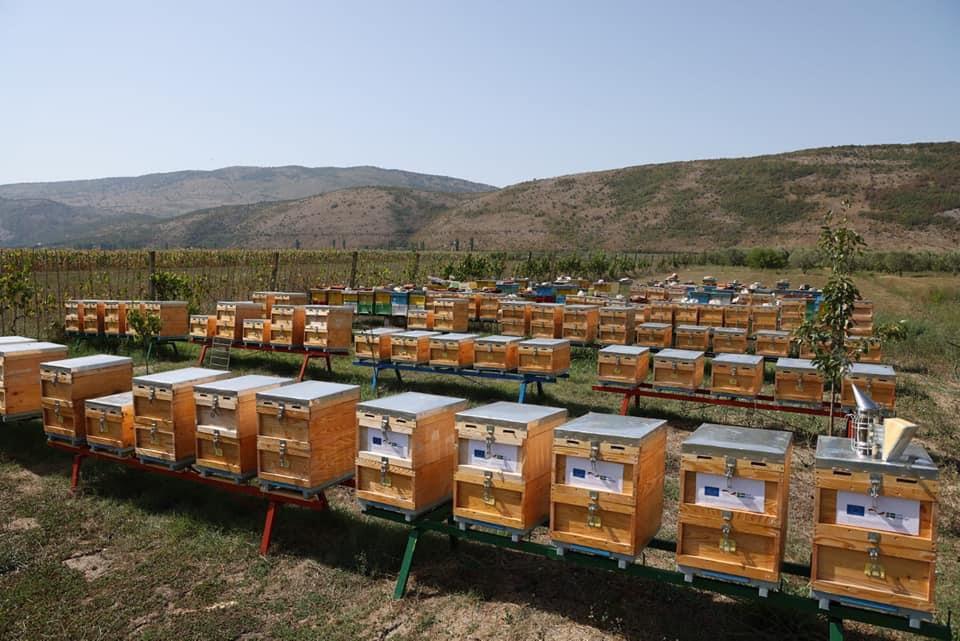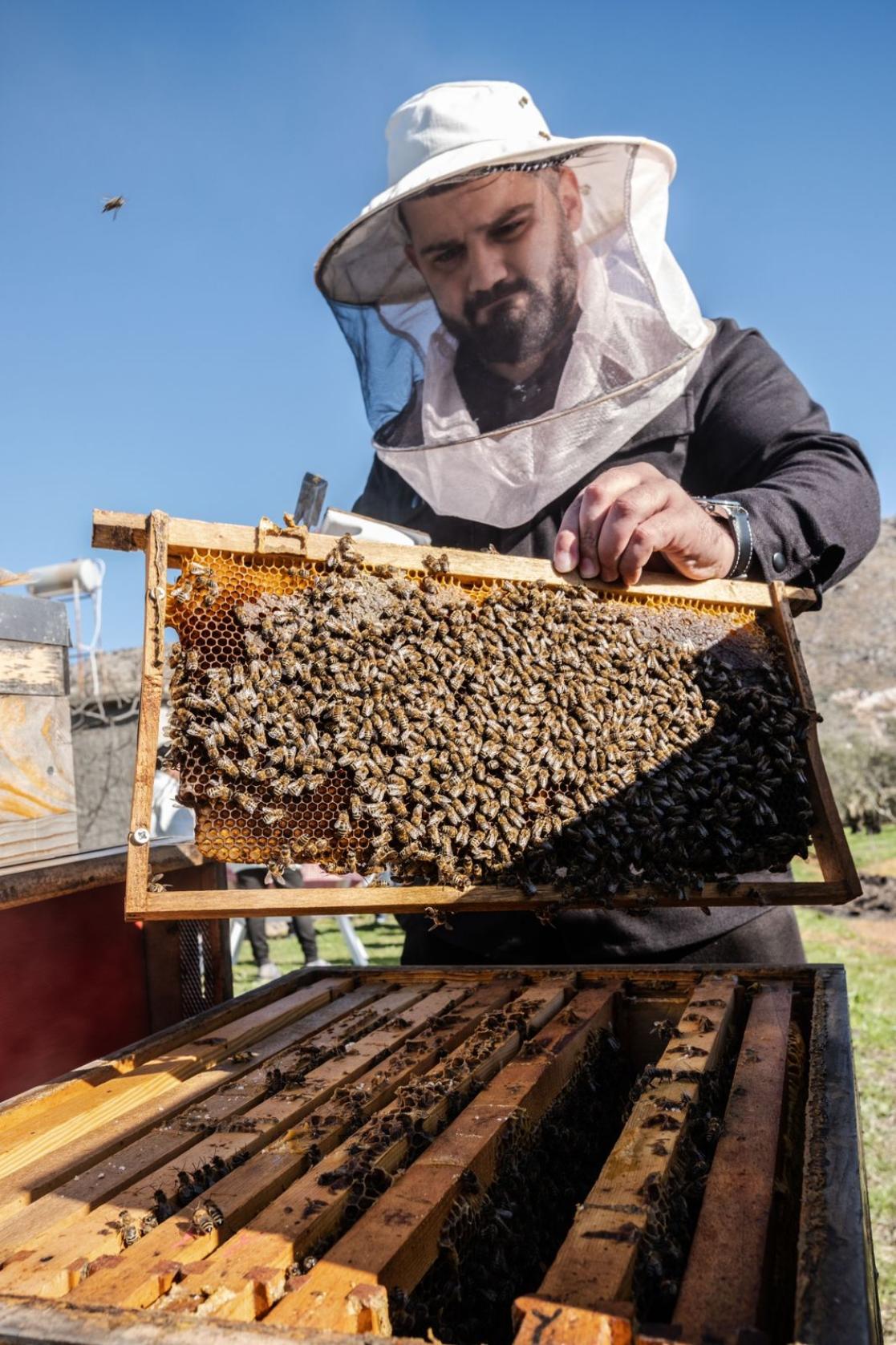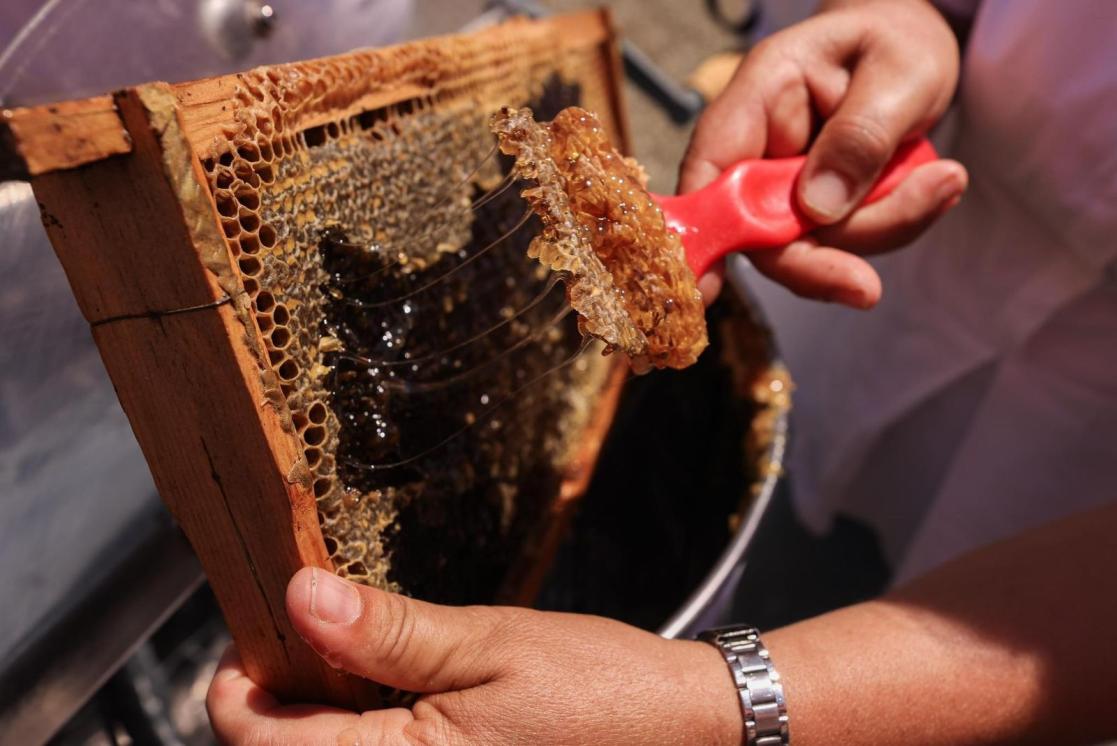Translating bees’ language to protect our world

In the backyard of an old house in Torovica, Lezhe, 80 beehives are placed next to grape vines. Around them it’s only the sound of silence. In February, when the temperatures are still low, you barely notice bees. Then at the beginning of spring, when the flowers bloom, hundreds of thousands of bees leave their hives and can be seen flying from the cherry blossoms to those of the sage, or flowering chestnuts. The nearby lawns, old meadows and the hills surrounding the village, become the Eden Garden for bees, allowing them to play the inestimably precious role they have on biodiversity by transferring pollen grains, helping fertilization and the production of seeds.
Some years ago, this extraordinary circle of life almost stopped, as the bees were infected with American foulbrood (AFB) a bacterial brood disease. “I had only three months working with bees and I was told to burn them, otherwise they would infect others, weakening and killing bees’ colonies”, says Rinaldo Gjolaj, a young beekeeper who has founded “Alpine bees”.
Then, he was only 22 years old, had left university to grow bees and suddenly, his life was turned upside down. “For a whole week I could do nothing but cry. Then I recalled I used to be an athlete and challenge myself in every championship, and this was how I knew, that the only way to win is to stand up after every fall”, he adds.
“It is not because things are difficult that we do not dare, it is because we do not dare those things are difficult”. This quote by Seneca has been a leading motivation for Gjolaj, since he lost 50 bee hives from the infectious disease. He managed to buy other bee hives facing the challenge that would bring another unexpected infectious disease or parasites, until two years ago, that he learned about innovation hives which have a monitoring device, that prevent the risks. It was then that he realized that his fear would come to an end. He applied for funding at “EU for Innovation” buying 30 devices for his hives.

EU Delegation to Albania
“They have sensors that monitor bees without opening the hives. Through the sounds emitted by the queen we can understand the state inside the hive. The monitoring devices translate the sounds into information for us. We can understand if the bees are stressed, if they have enough food, if they are infected, if the queen itself is harmed or if the ventilation is working. Thanks to the EU for Innovation fund, I now get to know on real time on my phone, what is happening in the hives”, explains Gjolaj.
“Listening” to the queen’s “voice” seems that has never been more essential for the lifecycle. Bees have a vital role as 4 out of 5 wild flowers and crops need animal pollination, at least to some extent, and our food and health depend on it. That’s why translating bees’ language helps to protect our world.
A tour in “Alpine Bees” park in Torovica was organized under the “Green Campaign” by “Europe House” together with H.A.N.A., a youth organization in Lezha. Dozens of young people followed Gjolaj’s story towards success and the importance of entrepreneurship in developing the area.
As a child, he loved the taste of honey. “This is how everything started”, tells Gjolaj to young people, “then you have to pursue your dream”.
“Alpine Bees” produces honey, pollen, propolis and bee milk or royal jelly. In the upcoming months Gjolaj will organize apitherapy groups, which helps people who suffer from asthma, adding another benefit from bees to the society.

EU Delegation to Albania
Background
EU for Innovation programme in Albania is funded by the European Union with additional support from the German Federal Ministry for Economic Cooperation and Development (BMZ) as well as the Swedish International Development Cooperation Agency (Sida). The project aims to strengthen the eco-system for innovation and start-up promotion in Albania. The programme is designed to create different incentives to improve the innovation ecosystem and to boost start up creation in Albania. It is implemented through three different areas focusing on: Capacity for innovation among innovation ecosystem actors, Building linkages within the Albanian innovation ecosystem and internationally and Funding innovative start-ups and innovation support providers.





